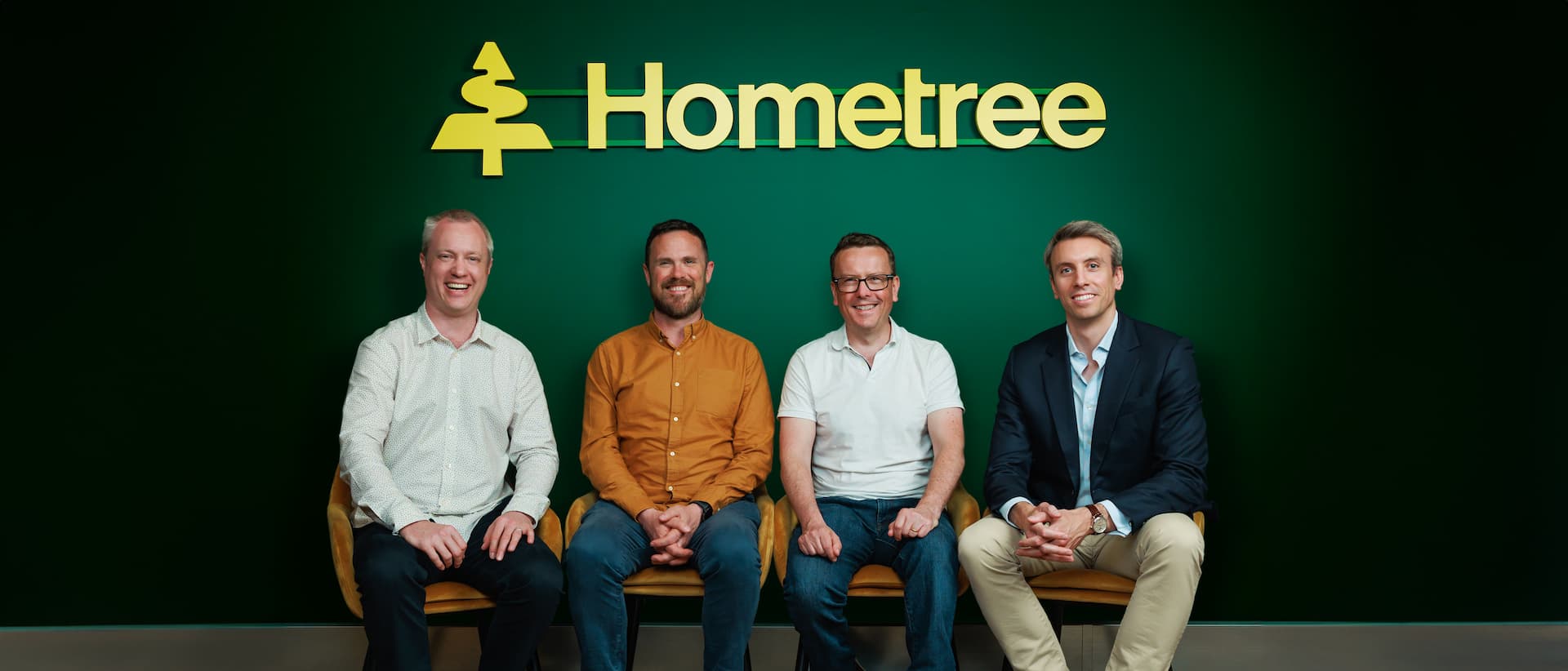Hometree secures £250m asset-backed debt facility from Barclays for UK’s first residential renewable securitisation

- Hometree, the residential energy services company backed by Legal & General, will use the facility to finance over 28,000 residential solar panel systems, batteries and heat pumps across the UK over the next two years
- This facility marks the UK’s inaugural residential renewable securitisation, positioning Hometree as a pioneer in shaping a new asset class which will support the decarbonisation of homes
- Similar financing structures have been key to bringing low-cost capital into the US residential renewables market, accelerating the uptake of solar and other renewable technologies
Hometree, the fast-growing residential energy services company, has secured a £250m asset-backed debt facility from Barclays, which will be used to finance over 28,000 residential solar panel systems, batteries and heat pumps across the UK over the next two years.
This further strengthens Hometree’s ambition to decarbonise over one million homes by 2030 and its plans to build Europe’s leading residential energy services business combining hardware installation, financing, repairs, and ongoing maintenance in one platform.
Accelerating the residential renewable rollout
To date in Europe, the residential renewables market has been driven by customers willing to pay cash for solar panels and heat pumps because they are enthusiastic about the technology, affluent and eco-conscious. However, there are mounting barriers preventing more households from installing renewable energy systems, with estimates indicating that up to one-third of UK households can’t afford renewable energy technology and UK government support schemes are waning. The full-scale decarbonisation of UK homes is estimated to cost £250 billion by 2050 according to the Climate Change Committee, which means the availability of easily accessible financing solutions will be key to removing one of the most significant barriers – high upfront cost.
Research from LCP Delta reveals that last year 43% of European solar customers bought a solar PV system on finance, but until now, finance products specific to this market in Europe have been extremely limited. Consumers instead rely on personal loans and credit cards, which aren’t purpose-built for renewables and often include high interest rates. In a market with better product offerings such as the US, the penetration of finance is much higher at up to 85% for solar panels.
Building a market leader in renewable residential energy services
Over the last eight years, Hometree has built a leading challenger brand in the UK home services market with over 100,000 customers and has recently started consolidating the fragmented renewable installation market. This new Barclays facility is enabling Hometree to bring highly innovative financing products to the UK residential renewable market including zero-deposit leases and loans with low interest rates, as well as highly attractive terms of up to 25 years, which are available for solar panels and battery systems, with heat pump options coming soon.
This is all possible by undertaking the UK’s first residential renewable securitisation. This process has become commonplace in the US for residential renewable loans and leases since SolarCity, the solar energy business co-founded by Elon Musk, carried out the first solar securitisation in 2013. Since then, the US has boasted an aggregate solar-ABS issuance volume of over $20 billion, averaging more than $4.0 billion per year across 2021-2023 – a number that is continuing to increase.
Securitisation has grown in popularity as a means of financing renewable energy installation as banks and capital market investors are primarily exposed to associated risks with renewable loans and leases, allowing them to focus on the risk of a homeowner defaulting, not risk to the installer. For players like Hometree, it means companies can obtain most of the hardware financing from third parties, enabling them to finance more projects, increase scale in the market and further reduce the cost of capital for households to drive the green home energy revolution.
Hometree Finance is already offering leases on solar and batteries and will begin offering finance for heat pumps later this year, whilst also releasing an unsecured loan product which is targeted for Q3 2024. Hometree expects to undertake the first UK residential renewables public market transaction within two years.
Simon Phelan, Founder & CEO of Hometree said, “Homeowners across the UK want to decarbonise their homes not only because it’s good for the planet but because they want more certainty and lower energy bills. However, the upfront installation costs are unaffordable for most people, despite the benefits solar panels, batteries and heat pumps can bring. We are excited to solve this at Hometree.
“The participation of the financial industry is fundamental to accelerating the enormous infrastructure upgrade our homes need to reduce their carbon emissions, and this transaction enables us to offer our customers a unique solution that otherwise would not be available in the UK market”.
Rory Duff, Co-MD of Hometree Finance said, “This debt financing and the beginning of our relationship with Barclays signifies recognition and trust from a major multinational financial institution that Hometree’s fully integrated approach installing, financing, repairing and maintaining domestic renewable energy systems has huge potential. It also positions us well to build one of Europe’s leading businesses in this market in the years to come.”
Gordon Beck, Head of European Corporate & Sustainable Securitisation at Barclays said, “Supporting fast-growing renewable energy clients like Hometree is a key part of Barclays’ strategy to facilitate $1 trillion in green and sustainable finance by 2030. This innovative financial structure is the first of its kind in the UK and will enable our client Hometree to offer a more affordable way for UK homeowners to install solar panels and other renewable technologies. Retrofitting UK homes is an important part of making progress on the path to net zero, and we’re excited to play a key role in that.”